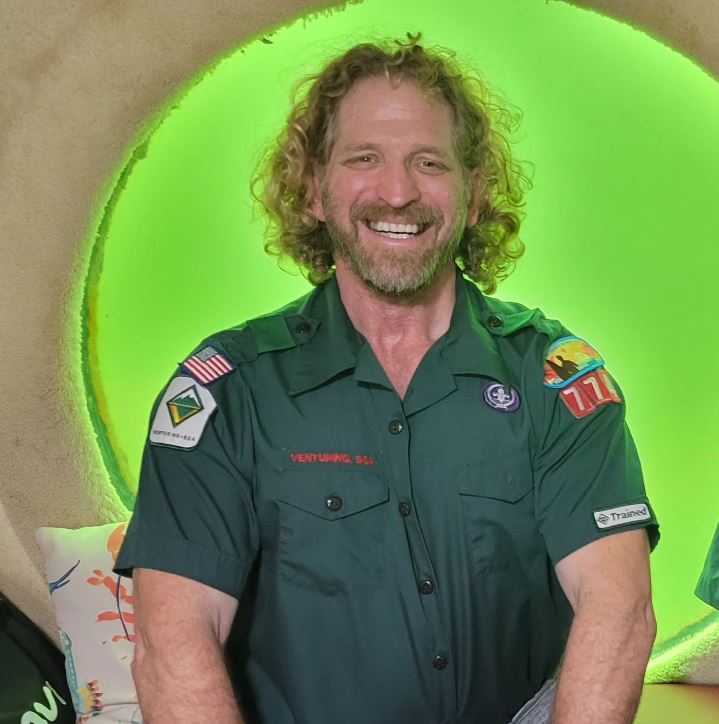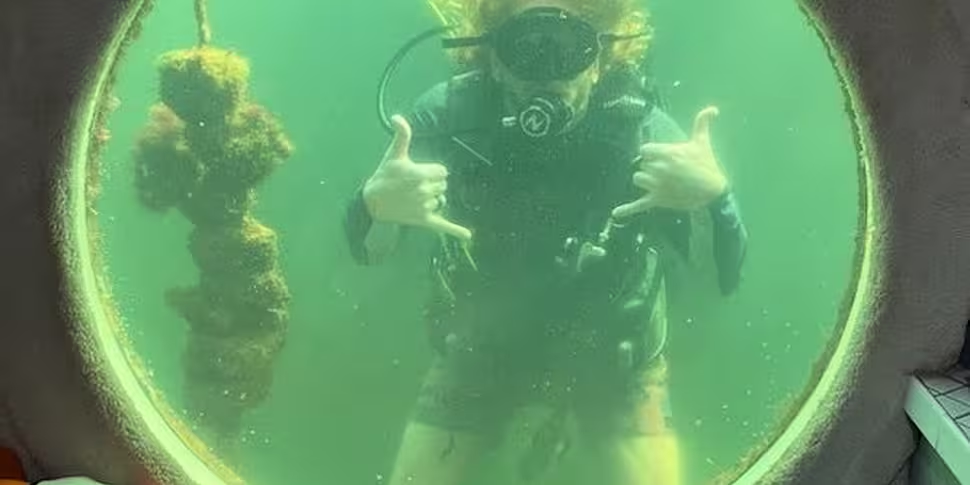A US biomedical engineer is living 100 days under the sea to test the effects on the mind and body.
Dr Joe Dituri is having oxygen pumped to him from the surface.
He told Moncrieff his living space leads a bit to be desired.
"I'm underwater in... two cylinders that are about 15 feet long by eight feet in diameter," he said.
"I have about 100 square feet total in usable space, and that's about it.
"I got a couple of windows".
Dr Dituri said some people swim down to wave at him.
"They'll come by and they'll high-five and say hello and just smile," he said.
"The kids play rock-paper-scissors, that's fun.
"About once every other day, or every three days, I get frozen stores delivered.
"I have to cook them in a microwave, because of the pressure we cannot have a heating element in here.
"So we have very little heat ability, the only thing I can cook in is a microwave".
View this post on Instagram
Dr Dituri said he really has no time for anything other than work.
"I literally finish my science at about 7.30pm every night, and I'm up at 5.30 or 6 in the morning doing science from the get-go," he said.
"Really I have literally no time - by the time 8 or 9 o'clock rolls around I am so ready for bed".
Dr Dituri said his earlier career prepared him for this.
"[For] 28 years I was in the US Navy, and this is what I did in the US Navy," he said.
"I was a Special Operations Diver and a saturation diver, so it's not a far stretch".
 Dr Joe Dituri in his underwater habitat. Picture via Instagram/drdeepsea
Dr Joe Dituri in his underwater habitat. Picture via Instagram/drdeepseaThe research is also being watched by NASA, as Dr Dituri explained.
"This is analogous to space travel," he said.
"Everybody says, 'We're going to Mars'... we got a couple of things we gotta work out here.
"What happens to people that live in an isolated, confined, extreme environment - such as the transit to Mars in a spacecraft?
"What happens to them from a psychosocial, psychological standpoint, from a physiological perspective?
"We're testing stuff with respect to muscle growth and muscle-building for the people on the International Space Station and space travellers in the future".
However Dr Dituri said he has noticed one big change.
"The frequency of urination has increased, as has the urgency to urinate and the amount that you urinate," he said.
"You are pumping against a static keg that is a greater pressure.
"I'm at 25 pounds per square inch, and as I try and push out I'm pushing against more pressure.
"So it's a little bit difficult, so that urgency is there," he added.
Listen back to the full interview below:









